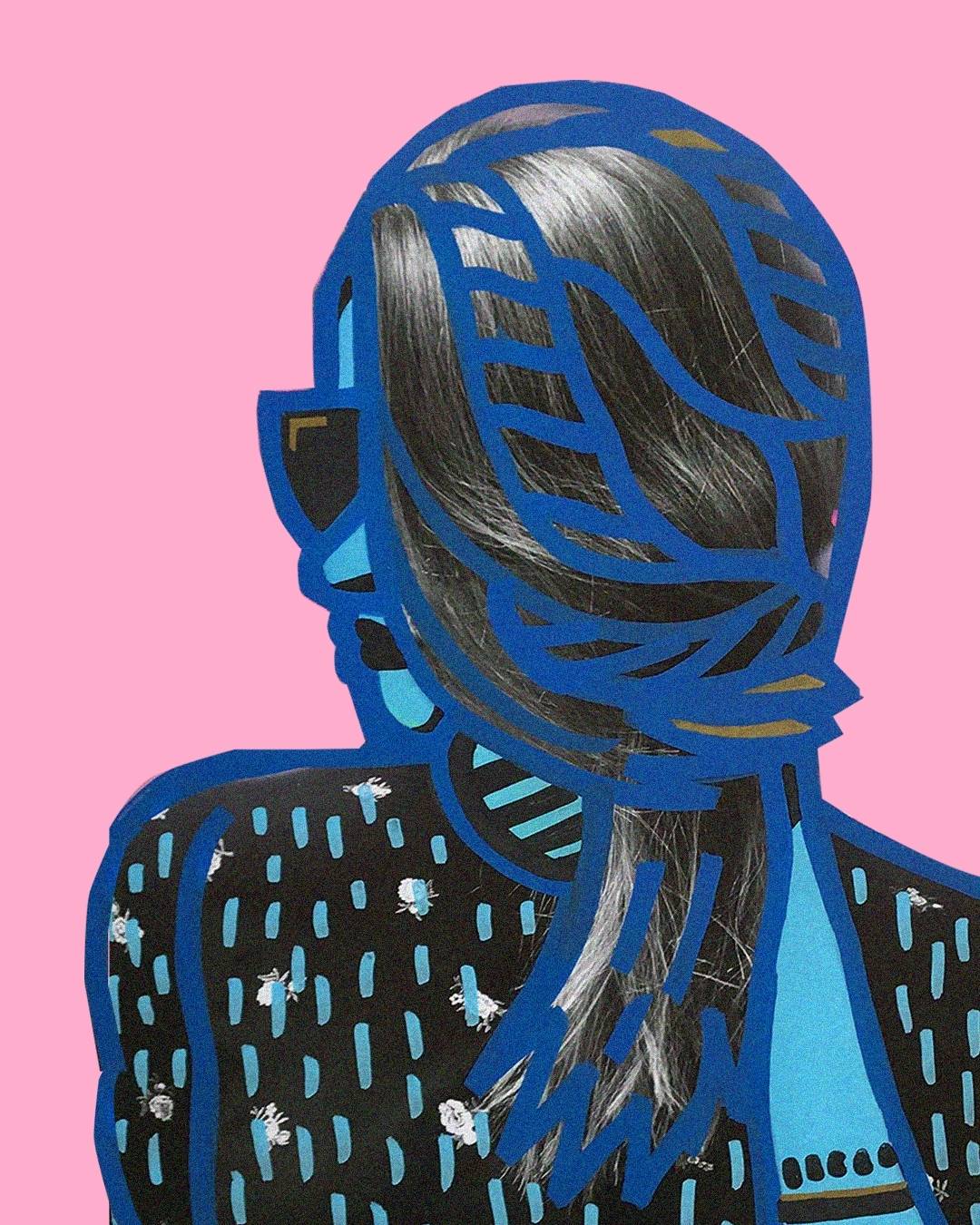In school, we learn our first lesson in failure — not from textbooks, but from how we are seen: as children who lack something, as if we are incomplete. Children who face untouchability and are discriminated against are told at every point that you lack merit, you don’t belong, or you are just not good enough. We ingrain the feeling of “less-ness” in us — a socially constructed idea of failure. In these crucial formative years, we are othered when we don't even know what it means. But the feelings are strong and have a long lasting effect on our life. Somewhere deep inside us, we learn that we are the other. That we are less, and impure.
This is what untouchability does to us: it makes us wonder our whole life – where am I going wrong? Why this dehumanisation? As children we can barely process it, yet we slowly learn to see ourselves the way society sees us. We are not taught that we’ve been denied access to basic resources and dignity; instead, we are told that something is lacking in us as we internalize it. This is what untouchability does to us, neatly, without the explicit act of withholding touch — it simply others.
In a society where we internalize this other-ness, there is also a standard idea of success. We don't feel successful by ourselves, it is society that decides who will be considered successful and who won’t. The idea of success keeps changing in different situations – if you have nothing, having few things is success; if you have a few things, accumulating everything is success; and if you have everything, success is mastering the world. If your parents are millionaires, getting a government job might not be considered a success, but for a person with no resources and security, getting a government job is definitely a huge success.
Thus, to upgrade from your socio-economic location is a general marker of success in our society. But it is largely dependent on the social realities that engulf us and our socio-economic background. For some, it can mean a transition from surviving on daily wages to having a monthly paying job. At the very baseline, what most of us want is a job, being able to take care of family and community, and being able to have our basic needs of food, clothing, living conditions, healthcare, and education be fulfilled — everything else builds on that. But do our systems and structures allow us the basics? It makes us wonder if we are the ones who failed to acquire the basics. The feeling of failure and shame that comes with it is personal, but it is rooted in the social — in its systems and structures.
I remember the failure I felt when I was doing my Master’s in Psychology. I had less marks than all the others, hence, there was constant pressure to prove myself as deserving. The lack of language and confidence had put me in a situation where I didn't believe I had the qualities one requires to be a psychologist. So, I dropped out of master’s. The failure that I felt for not being able to survive the casteist classroom was personal — the blame was on me. I had developed a belief system that my failure is individual and I treated myself the way the world has treated me. The shame took on and there was only hopelessness for years.
In the face of such a society, whose structural balance almost depends on us hating ourselves — loving oneself is rebellion.
Though, with time, after pondering much on these constructs of failure and success and talking about this with people around me, I figured we all were fighting to survive, and just surviving was a big thing for each one of us. I learned that being alive in itself was revolutionary on the face of society that wants us to kill ourselves. The way Audre Lorde says, “Caring for myself is not self-indulgence, it is self-preservation, and that is an act of political warfare.” While surviving within this society, we are made to feel we are not enough at every step, we are treated brutally. In the face of such a society, whose structural balance almost depends on us hating ourselves — loving oneself is rebellion. It is a practice of choosing humanity.
Even if we choose humanity, even if this knowledge has occurred to us, we still feel like we are failing because we have to constantly fight to survive and create space. Even with a master’s degree, there are very few jobs available, and even if there are vacancies — nobody wants to hire a Disabled Dalit to work for them. And everyday we blame ourselves for not working hard enough and it seems like a personal failure but it isn't! It is the failure of a society which does not have dignified living conditions for people, no basic needs fulfilled, everyday violence, no job availability, no health services, education being gatekept and privatized. Many around me carry heavy debts from loans for education, health, etc. - so today, after getting jobs, whatever they earn disappears into repayment. With all this, we try to survive from one day to the next.
These experiences of failure and exclusion are shared across generations, deemed as personal, while the blame lies very clearly on the society. It is a psychological system the powerful have created — they want us to stop, be hopeless, and feel as less of a human as we can. These feelings of failure, insecurity, shame are not ours but belong to them. People from dominant communities with enough generational resources and the structural power possess a kind of confidence that persists even if they are wrong. Their argument of merit lacks truth and comes from their lack of knowledge, but they are so confident about it because they are safe in all ways. Ironically, this confidence somewhere comes from a deep insecurity of what if the Oppressed starts talking? What if they become powerful? And so, they make us feel lonely. This is because as soon as we stand together as a community and for ourselves – they become weaker. Just our existence and our belief that we are humans and need to be treated as one threatens their inhumanity. They do not want us to build systems of community care — so they shame us. These tactics often get deeply internalized by us, even though this view of ourselves as less is not ours to carry. The idea of shame lies somewhere deep within, surfacing quietly at times.
Yet, there is resistance in living. People around me are building communities — creating spaces, reaching out, bringing people together. We are making spaces in the face of this world, and being alive — that is resistance. Failure and loneliness go together, and the traumas we experience make us mentally disturbed. But when we meet and we hold spaces to listen without judgment, when we sit and talk about these experiences of ours, we feel seen — and being seen as a human being becomes a powerful act. We try to help each other get through life by supporting each other mentally, with work, and to navigate the so-called failures that take us down. We also learn to succeed together — whatever our definition of success may be.
In the dark hole of casteism and patriarchy, each one of us holds a small flame of light. They may be tiny, like a candle — or even an ignited incense stick — but even that can burn a whole house down. And this light will for sure grow into a burning Torch (मशाल). This light was brought into our lives by Savitrimai and Mahatma Phule, by Babasaheb Ambedkar, and many others whose names we don't know. Like my grandmother, who was the first one to drink water from the well in our village (which, for the upper-castes, was making the well impure - in Marathi “pani batavla”) but because of her, our generations will get to drink water.
Today, we are moving beyond water. We are claiming spaces in government, in private jobs, in education, in art. The flame of the torch (मशाल) keeps rising. Individually, we may feel depressed sometimes, but together — writing, talking, reaching out — we build that light. We survive, and survival is the prerequisite of revolution, as it is for evolution. Revolution includes compassion, love, protest, joy and many more things, but it cannot begin until survival is secured. For many of us, everything comes down to survival, making Survival itself an act of revolution.

